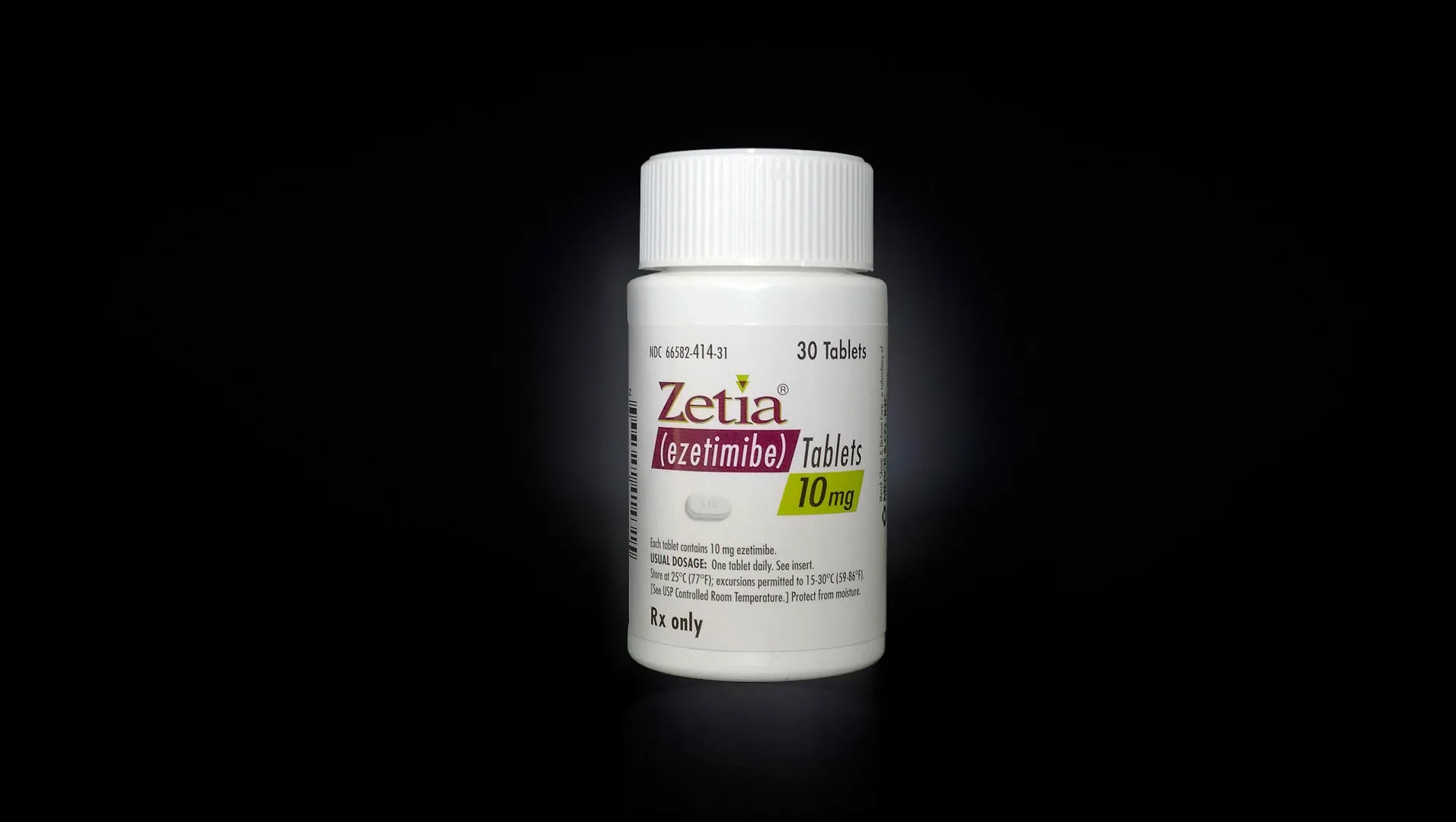Zetia - Product Description
Overview:
Zetia (ezetimibe) is a non-statin medication used to lower LDL cholesterol by inhibiting the absorption of cholesterol in the intestines. It is often prescribed in combination with statins or as a standalone treatment for patients who require additional LDL cholesterol reduction. Zetia is particularly beneficial for patients who cannot tolerate higher doses of statins or need enhanced cholesterol management. Taken once daily, Zetia is effective in reducing LDL cholesterol levels and has a well-established safety profile with minimal side effects. Regular cholesterol monitoring is recommended to assess the effectiveness of the therapy. Zetia’s unique action and compatibility with other lipid-lowering therapies make it an integral part of comprehensive cardiovascular care.
Indications:
Zetia is indicated for the treatment of hypercholesterolemia, particularly in patients with elevated LDL cholesterol levels. It can be used alone or in combination with statins to enhance cholesterol reduction. Zetia is particularly useful for patients with primary hyperlipidemia, including those with familial hypercholesterolemia, a genetic condition causing very high cholesterol levels. Zetia is also indicated for patients who cannot tolerate higher doses of statins due to side effects or those who need additional LDL cholesterol lowering. Its role in reducing LDL cholesterol helps lower the risk of cardiovascular events, making it a valuable component of a lipid-lowering strategy.
How to Use:
Zetia is typically taken once daily, with or without food. The medication works best when taken at the same time each day to maintain consistent levels in the body. It is important for patients to continue following a cholesterol-lowering diet while taking Zetia to maximize its benefits. Regular blood tests are necessary to monitor cholesterol levels and assess the medication's effectiveness. Patients should not miss doses, and if a dose is missed, it should be taken as soon as remembered unless it is close to the next scheduled dose. Consistent use of Zetia is key to achieving and maintaining healthy cholesterol levels.
Advantages:
Zetia offers several advantages, including its unique ability to lower LDL cholesterol by blocking its absorption in the intestines. This makes it an effective add-on therapy to statins, providing additional cholesterol reduction without significantly increasing the risk of side effects. Zetia is well-tolerated, with minimal side effects, making it suitable for long-term use. Its compatibility with other lipid-lowering medications enhances its versatility, allowing for a personalized approach to cholesterol management that can adapt to the needs of different patients. These benefits make Zetia a valuable tool in reducing cardiovascular risk.
Conclusion:
Zetia is an effective cholesterol-lowering medication that works by reducing the absorption of cholesterol in the intestines. Its ability to lower LDL cholesterol makes it an important option for patients who need additional cholesterol reduction or cannot tolerate higher doses of statins. Zetia’s well-established safety profile and minimal side effects make it suitable for long-term use. By incorporating Zetia into a comprehensive cholesterol management plan, patients can achieve better control over their cholesterol levels and reduce their risk of heart disease and stroke. Regular monitoring and adherence to the prescribed regimen are essential for maximizing the benefits of Zetia.
Composition:
Zetia contains ezetimibe as its active ingredient, which works by inhibiting the absorption of cholesterol in the intestines. This mechanism helps to lower LDL cholesterol levels in the blood. The inactive ingredients in Zetia may include microcrystalline cellulose, lactose monohydrate, sodium lauryl sulfate, and magnesium stearate, among others, which help stabilize the medication and ensure consistent absorption. Zetia’s formulation is designed to effectively manage cholesterol levels, providing essential cardiovascular protection.
Note:
Patients taking Zetia should be aware of potential side effects, though they are generally mild, including possible gastrointestinal discomfort and headaches. Regular monitoring of cholesterol levels is important to assess the effectiveness of the medication. Zetia should not be used in patients with active liver disease or in those with known hypersensitivity to ezetimibe. Pregnant or breastfeeding women should consult their healthcare provider before using Zetia, as its effects on the fetus or infant are not fully known. Patients should inform their healthcare provider about all other medications and supplements they are taking, as Zetia can interact with certain drugs. Following a healthy diet and lifestyle is essential to complement Zetia’s cholesterol-lowering effects.






